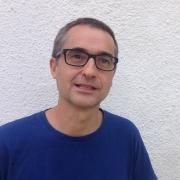
For some time we’ve been living in a bubble of solidarity sports events, a reality which pushes us to ask ourselves many questions.
NGOs’ financing needs, and those of other organizations working for social improvement, push them to search for original ways to do fundraising. All large events can be a good opportunity and, for some years, sports –as had been the case with concerts– have become a very attractive fundraising opportunity. Combining sports and solidarity is attractive and almost seems natural. Indeed, practicing sports makes us better persons, but this does not ensure the sports-solidarity binomial always works.
To be a good sportsperson, one has to be honest with oneself and with others. For some time we’ve been living in a bubble of solidarity sports events. As all bubbles, this comes with honest offers that are well thought through, but also other events where the solidarity component seems more of a marketing tool than a true intention to contribute to improving society. We must demand honesty from the organizers of such events, while also being honest to participants. When we play football or run a marathon, we know what we’re up for. But is the same true when we participate in a solidarity sports event?
This pushes us to ask ourselves many questions. As an event organizer: do we believe in solidarity? Will the event have a real impact for social improvement and will the resources allocated be balanced with those provided to the sports organization? Are we holding at heart the social and environmental in our procurement and when hiring services and products? And as participants: do we know what our donations are used for? Do our donations require the same effort from us as practicing sport?
These are all questions we asked ourselves long ago at Obra Social Sant Joan de Déu. And Magic Line is the outcome: a solidarity mobilization that ends with a team hike that is not a competition. In order to participate, teams must commit to do fundraising and organize actions to achieve this goal. From the part of the organizers, we explain with total transparency what projects will benefit, we make sure that the funds allocated to the project are significant, we implement inclusion and responsible procurement policies, and we take care of our environment. We still have a long way to go, but we know where we’re aiming.
Magic Line takes its name from the most difficult K2 climbing route, in the Himalayas. Completing this route requires personal commitment and teamwork, two fundamental components for group sports and for the solidarity challenges we are faced with today.



Add new comment